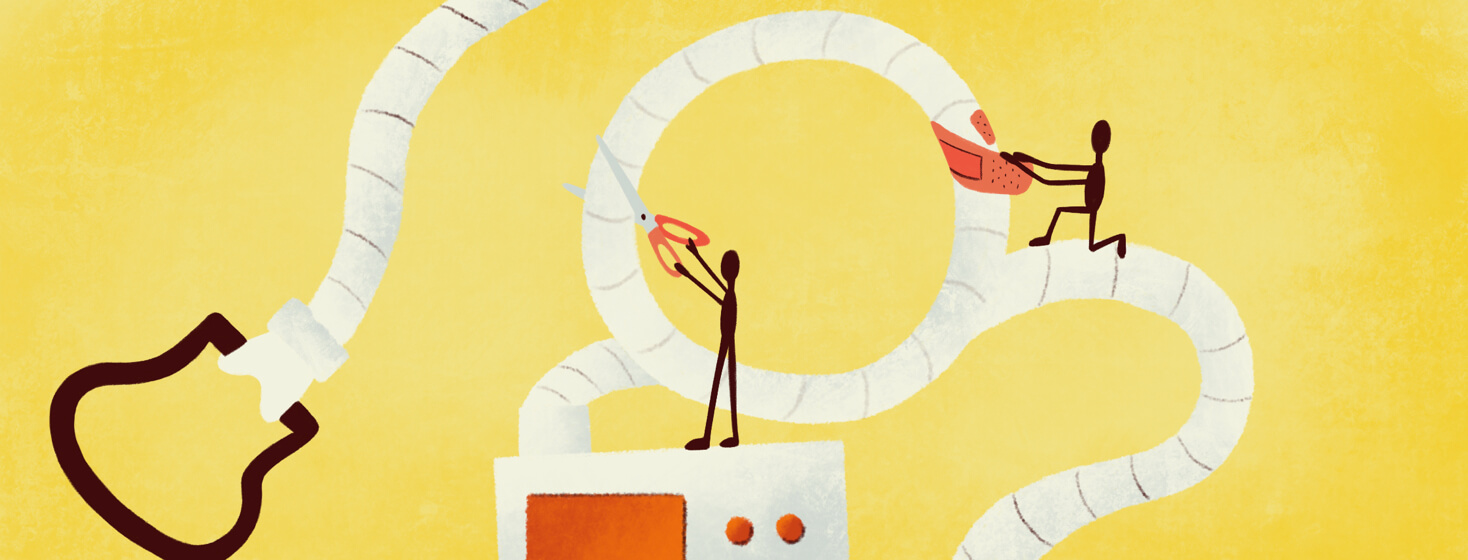Stopping and Starting: A Never-Ending Cycle With CPAP
Using the CPAP is hard, and for me, it's always been a start-and-stop process throughout the years. When talking to my sleep specialist, she told me that in her experience, about 40 percent of people cannot tolerate CPAP. For a lot of years, I could attest to being part of that percentage that couldn't tolerate it.
My long struggle with CPAP
During the 15 years I've had sleep apnea, I cut my cornea with one of my early masks. Then the air blowing in my eyes dried my eyes out, so the initial cut kept reopening until I finally had the top layer of my cornea removed so it could heal flat.
I have spent countless sleepless nights online looking for alternatives to my CPAP. During my journey, I have tried a dental device, surgery, and more mask styles that I can count.
When my son had surgery, I was super excited to learn about a new device with great results for people who can't or don't want to use the CPAP, but I wasn't eligible for it.
Would surgery improve my CPAP experience?
When I was first diagnosed with sleep apnea, an ENT found that my adenoid and tonsils were enlarged, with my adenoid being the size of a golf ball. They were hopeful that after surgery, I may not need a CPAP, or if I did, I wouldn't need it on the highest pressure setting of 20 that it's on currently. If you had your machine on 20 – even on ramp – the only way I could describe it is like sticking your head out the window on the highway.
After the surgery, it took about 4 weeks to heal, and then we repeated another sleepy study. I was crossing my fingers that I would be able to throw the whole CPAP away. However, it helped some as I was able to go from 20 to 17, which was an improvement but still very hard to tolerate.
Could a dental appliance replace my CPAP?
I tried for a while, but once again, I quit using my CPAP. Then I tried a dental appliance with no machine as an alternative. I knew going in that I needed the machine, but it was a "something is better than nothing" step for me.
I went to the dentist, who did a custom mold and created a device that was supposed to position my mouth and jaw to keep my airways open and help my TMJ and teeth grinding at night. When I got it, I was so excited that this could possibly be an alternative to the CPAP machine.
The first night I put the device in, I woke up at about 2:00 AM, and the device was on my forehead. I went back to have it adjusted and I gave it another try. This process continued for about a week of getting adjusted, and every time the results were the same, it never made it in my mouth throughout the night. After 7 adjustments, I tossed it in the trash and pulled out my CPAP again.
What about the Inspire device?
My son had sleep apnea for a moment, but we were so blessed that after having his tonsils and adenoid removed, he no longer had sleep apnea. I was so excited during his visit when his doctor told me about one of his colleges that puts in an Inspire device. The device sends a gentle signal to move your tongue while you sleep to open your airways.
We hadn't even left his office before I was calling my primary doctor for a referral to that clinic. All I could think of was cutting the cord and being able to sleep free – unrestricted with no headgear or mask.
When I called to schedule the appointment, they asked my weight and told me that I would need to be 190 lbs. or less to even qualify for the device. I was crushed and frustrated that this option was no longer an option.
Try as I might, I always return to CPAP
Many people struggle with CPAP therapy for many different reasons. It's been a long journey for me. Using my CPAP has come with some side effects, like dry eyes. One of my earlier masks had a hard bar for the full place that damaged my cornea, but CPAP is the only tried and true treatment for obstructive sleep apnea.
No matter how many times I try to find an alternative treatment, I always return to trying to find a way to use and live with my CPAP. How many times have you started and stopped CPAP therapy?

Join the conversation